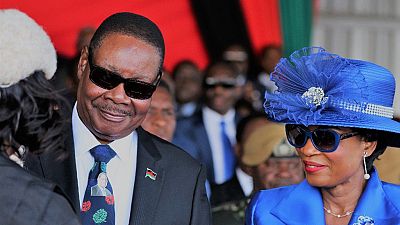
MALAWI
Malawi’s electoral commission (MEC) chief, Dr. Jane Ansah has called upon stakeholders including political parties to refrain from announcing premature results, pledging that the commission will start official declaration of results as soon as 20% of votes cast have been tallied.
Citizens went to the polls on Tuesday, casting their votes to elect a president, members of parliament and local government councillors.
President Peter Mutharika is seeking a second term, and is being challenged by his deputy, Saulos Chilima, and the leader of the country’s biggest opposition party, Lazarus Chakwera.
In this article, we provide updates from the time polls opened on Tuesday morning, to the time official results will be announced, which Ansah said will be within 8 days.
- Incumbent overtakes opposition
- Opposition warns against rigging
- Results collation ongoing across the country
- Commission warns against premature results
- Voting closes, counting underway
- Election anomalies registered
- Main candidates profiles, and where they cast their votes
- Electoral commission explains Chilima’s delayed voting
- Malawi’s election in numbers
- Chilima’s 40-minute wait to cast his vote
- Election observers project high voter turnout
- Malawians share voting experience online
- Polls open
- Why this is a high-stakes election
Incumbent overtakes opposition candidate with 30% of vote count left
The Malawi Electoral Commission, MEC, as at midday Thursday said it had so far received 75.81% of all results from polling stations.
So far: Incumbent president Peter Mutharika (DPP) had 1,436,877 (40.49%). Lazarus Chakwera (MCP) polled 1,257,853 (35.44%) with vice-president Saulos Chilima (UTM) having 651,124 (19.35%).
Collation restarted 10:00 local time after it was suspended on Wednesday evening. At the time the main opposition candidate Lazarus Chakwera of the Malawi Congress Party, MCP, was in the lead with 30% of vote count.
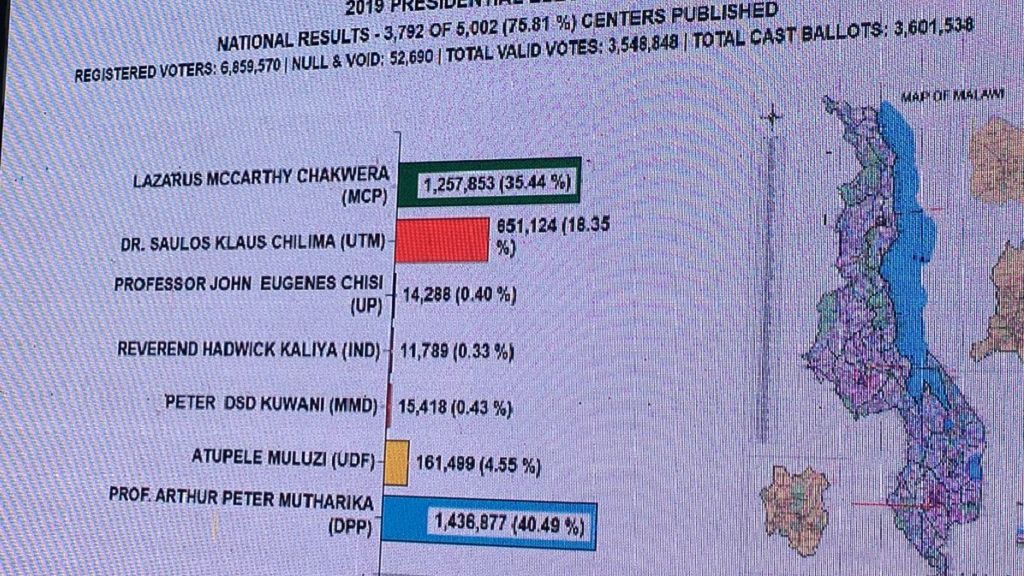
Opposition leader warns against rigging
Malawi’s opposition leader Lazarus Chakwera on Wednesday warned against attempts to rig the country’s election, claiming he was clearly leading in results so far tallied.
Early official results showed President Peter Mutharika and Chakwera were equal on about 37 percent of the vote with about one-third of polling centres counted after Tuesday’s election.
“So far the message is clear, we know that we have a tremendous lead,” he told a news conference at his house in Blantyre.
“No one is going to rig this election. Justice is going to prevail.”
Chakwera said his Malawi Congress Party (MCP) was conducting its own count, even though local observers earlier declared the election largely free and fair.
“Those in power, I know you, you’re trying to tamper with elections,” Chakwera said, who came a narrow second in the 2014 election.
“I warn you, you will soon face the long arm of the law”.
Chakwera has campaigned on an anti-graft platform and has been credited with reviving the MCP.
Two months ago, he secured the high-profile support of former president Joyce Banda.
Main opposition candidate in slight lead
The main opposition candidate in Malawi has taken a slight lead as the elections body continues collating and announcing results from Tuesday’s election – specifically with the presidential race.
The elections body had as at Wednesday morning officially declared 35.67% of results putting Lazarus Chakwera in the lead with 533,217 (37.65%) whiles his closest contender and incumbent Peter Arthur Mutharika came a close second with 524,247 (37.01%).
In a distant third place is Saulos Chilima, Mutharika’s estranged vice who formed a breakaway party to contest for the top seat. He had garnered 293,978 (20.76%).
Given that Malawi operates a first past the post system, whoever comes top irrespective of the percentage will be declared winner.
Analysts hold that its early days yet as results are awaited from other parts of the country, only then can firm projections be made as to a likely winner of the presidential race.
With results received so far: 1,748 out of 5,002 centres:
Lazarus Chakwera (MCP): 533,217 (37.65%)
Saulos Chilima (UTM): 293,978 (20.76%)
Peter Mutharika (DPP): 524,247 (37.01%)
Atupele Muluzi (UDF): 48,766 (3.44%
Saulos Chilima (UTM): 293,978 (20.76%)
Peter Mutharika (DPP): 524,247 (37.01%)
Atupele Muluzi (UDF): 48,766 (3.44%
Meanwhile elections chief Jane Ansah has stressed the need for parties to desist from announcing unofficial results. “Political leaders shouldn’t overstep commission’s authority.
“The mandate to announce results remains solely with MEC. The commission has managed to deliver peaceful and fair elections & is even capable of delivering credible results,” she is quoted to have said.
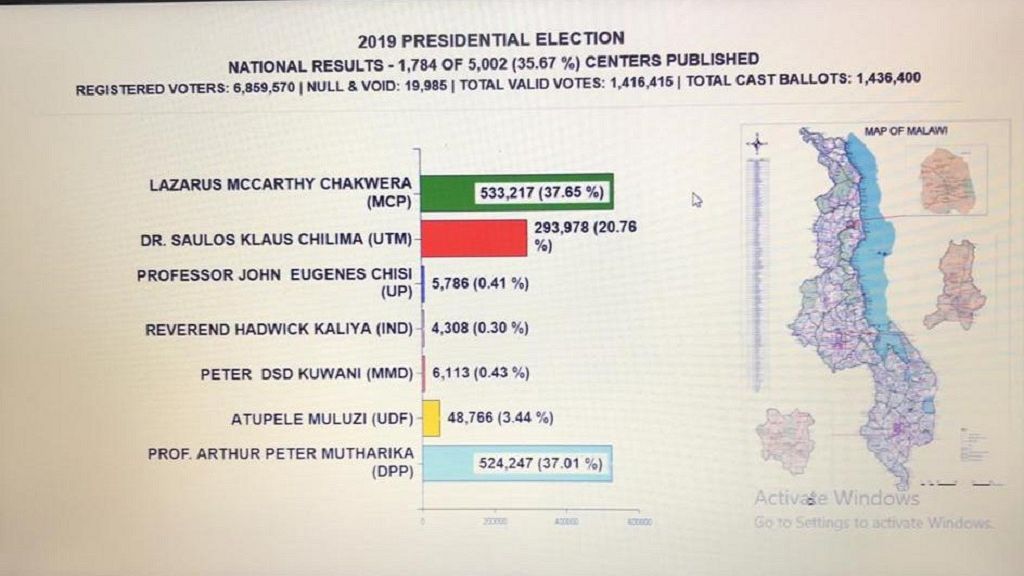
Commission warns against premature results
Malawi’s electoral commission on Wednesday addressed journalists, election observers and political party agents on Wednesday morning, warning against trusting the authenticity of results published on social media.
Commission chief Dr. Jane Ansah reassured the nation that a backup plan had been put in place to deal with any technical hitches that might be encountered, as the country uses the electronic system of tallying results, for the first time.
‘‘The first result was received at midnight but have received only partial results from polling centers. Results have been slow because we’re experiencing some problem in result transmission.’‘
‘‘Security at all centres is very high. Anyone trying to tamper with results transmission I caution them to refrain. Both the police defense force are on high alert,’‘ Dr. Ansah added.
Under the electronic tallying system, results are canned and sent to the national tallying centre in Blantyre, using specially designed forms that have several security features. The commission also has auditors who will confirm figures before they are released and displayed on giant screens at the national tally center.
Polls close, vote counting underway
Counting has started at 6pm across #Malawi.
Below, a photo sent by our observers in Lilongwe.#MalawiElections2019
See EU EOM Malawi 2019's other Tweets
“I have a strong feeling that the choice I made will carry the day,” said Tima Nyirongo, 31, a mother of two who voted at a polling station in Blantyre, the southern African country’s commercial capital.
Election anomalies registered
While the voting process has so far been peaceful and relatively smooth, there have been a few anomalies that have been registered and acknowledged by the electoral authorities.
Other than the widely reported incident of vice president Chilima’s delayed voting, there have also been issues of misplaced ballot papers and voter’s registers.
The electoral commission said Chilima’s name was transferred from his official polling station, while voting is reported to have started late at the Kanyenjele polling station after it was supplied with a wrong voter’s register.
There have also been reports of misplaced Mangochi ballot papers being found at Naotcha centre in Blantyre, while Blantyre city centre Matope Ward ballot papers were found within Dziwe Balaka south constituency ballots.
Main contenders cast their votes
President Peter Mutharika is seeking a second and final term, but faces a tough challenge from his deputy, Saulos Chilima and other opposition leaders.
Mutharika’s term has been dominated by food shortages, power outages and ballooning external debt, which have damaged his popularity, as well as concerns about his health.
Mutharika at a glance
- 78 years old
- became president in 2014
- his elder brother Bingu wa Mutharika was also president and died after having a heart attack while in office.
- is a constitutional expert and former law professor at Washington University
- previously served as a minister of justice, for education, science and technology, and as minister of foreign affairs
“I am happy that I have voted,” said Mutharika, 78, leader of the ruling Democratic Progressive Party (DPP) after leaving a polling station in Thyolo town outside Blantyre.
“There are very long lines but I am encouraging everyone to vote because it is the people who will decide.”
President @APMutharika voting at Goliati, in Thyolo. #MalawiElections2019 #MalawiDecides2019
Pic credit: Abel Ikiloni
See Malawi Government's other Tweets
Saulos Chilima was Mutharika’s running mate in 2014 and became vice president — but he then fell out with his boss.
Chilima at a glance
- 46 years old
- quit ruling party last year and set up United Transformation Movement (UTM)
- previously worked as senior executive at Unilever, Coca-Cola and Airtel
Chilima has run a colourful and energetic youth-targeted campaign on a platform of eradicating poverty, fighting graft and creating employment. But it is uncertain if his new party can make a major impact.
His wife Mary made waves ahead of the election, releasing a slick and much-admired rap video extolling her husband’s candidacy.
PICS: Vice President & @UTM_inUK Presidential candidate Dr. Saulos Chilima casting his vote earlier today. #MalawiElections2019 #MalawiDecides2019
Pic credit: Govati Nyirenda
15 people are talking about this
Former evangelist Lazarus Chakwera, 64, leads Malawi’s oldest party, the Malawi Congress Party, which is the main opposition party and ruled Malawi from 1964 to 1994 under Hastings Banda’s one-party rule.
Chakwera led the party into the 2014 elections, coming second to Mutharika at the polls and he now hopes to go one better.
The Malawi Congress Party has lost all five presidential elections since 1994 but Chakwera has made great efforts to re-energise its base.
Chakwera at a glance
- 64 years old
- Chakwera was president of the Malawi Assemblies of God from 1989 to 2013
- he was endorsed by former president Joyce Banda in March
“We mounted a very formidable campaign unlike any other party and unlike any other year,” Chakwera said after voting in Lilongwe as crowds scrambled to see him.
“We are positive about the result.”
Malawi Congress Party presidential candidate @LAZARUSCHAKWERA casting his vote in his home village in Malembo , Lilongwe North West. #MalawiElections2019 #MalawiDecides2019
Reported by @lisakadango
See Malawi Government's other Tweets
Former President Dr. Joyce Banda going through the voting process this morning at Malemia Polling Station in Zomba Malosa Constituency#MalawiDecides2019 #MalawiElections2019
Pics Credit: Evance Chisiano, Malawi News Agency (Mana)
22 people are talking about this
41-year-old Atupele Muluzi, has drawn large crowds to his rallies and is considered the outsider who has a slim chance.
Muluzi at a glance
- 41 years old
- leads United Democratic Front (UDF)
- son of Bakili Muluzi who governed the country from 1994 until 2004
- UDF allied with Mutharika’s ruling party after 2014 elections
- is currently the health minister
Analysts say Muluzi’s alliance with the government may have cost him votes.
UDF Presidential candidate @AtupeleMuluziMP casting his vote at Nainunje polling center in Machinga North East constituency where he is contesting for the MP of the area. #MalawiElections2019 #MalawiDecides2019
Reported by Patrick Ndawala
See Malawi Government's other Tweets
Electoral commision update
Malawi Electoral Commission (MEC) chairperson, Dr. Jane Ansah has explained that Chilima’s name was transferred during the verification process between January and February 2019 from his St Thomas Polling Centre to Chizumulu Island.
Ansah also urged employers to desist from preventing their employees from voting, saying the commission had received complaints.
Malawi’s election in numbers
- 8 presidential candidates
- 193 parliamentary seats
- 1,331 parliamentary candidates in 2019
- 6,859,570 registered voters
- 5,006 polling stations
- 11,095 commission officials
Chilima votes
Local media are reporting that the vice president Saulos Chilima waited up to 40 minutes before he could cast his vote at St Thomas Polling Centre in the capital Lilongwe. His name was reportedly missing from the voters’ register.
Chilima, who fell out with president Mutharika, and quit the ruling party last year, has previously accused the state of harassment and intimidation.
ALSO READ: Malawi’s Mutharika criticised for ‘illegally’ sacking vice presidentHis name has not been found. He has been allowed to vote because he has the voter's ID, National ID and he registered with his wife whose details are available.
See Justin G Mkweu's other Tweets
Monitoring the polls
Meanwhile, the European Union Elections Observer Mission (EUOM) in Malawi has deployed over 80 staff at polling stations across the country, and will be giving regular updates throughout the voting, counting and tallying stages.
‘‘It is pleasing to note that polling appears to be underway in all the areas where we have observers, meaning materials have been delivered and polling staff were ready,” the EUOM Chief Observer, Miroslav Poche said on Monday.
‘‘Many polling stations have lengthy queues, indicating that Malawians are turning out in large numbers to vote.’‘
We just visited St Kizito primary school in Limbe and everything was well organized (super impressed with their signs for each stream!) and going on well. One voter reported to us that he waited only ~20 minutes to vote. #MalawiElections2019 #MalawiDecides2019
See kim yi dionne's other Tweets
Malawians share voting experience online
I have done my part and voted, go out and VOTEMalawi. #MalawiElections2019 #MalawiDecides2019 #DoloAmavota #VoteMphamvuYanga #MWVotes2019 #MWDecides2019
See Leah Soko's other Tweets
This really a special feeling... It's my first time, out here standing on th line... My heart racing#MalawiDecides2019
See Jodeh's other Tweets
Malawi Defence Force soldiers casting their votes at Community Center Hall in Nkhotakota Central Constituency. #MalawiDecides2019
See NationOnline's other Tweets
It's done guys. It is very peaceful in #Blantyre.My #Vote my #Voice. Ready to work with the new government for a better #Malawi. LET'S DO THIS #MalawiElections2019 #MalawiDecides2019
See Charles M. Lipenga's other Tweets
Polls open
Polling stations opened at 6:00 hours local time (0400 GMT) in Malawi on Tuesday, and voters will now have the opportunity to decide the fate of incumbent president Peter Mutharika who is battling to hold off two serious rivals in a race that focused on corruption allegations and economic development.
Mutharika, who has been in power since 2014, will face opposition from his own deputy Saulos Chilima and former baptist preacher Lazarus Chakwera.
“We have set Malawi on the path of progress,” Mutharika, 78, told several thousand cheering supporters of his ruling Democratic Progressive Party (DPP) in Blantyre at his final campaign rally at the weekend.
His bid for a second term has focused on the economy and his record of improving road and electricity infrastructure across the southeastern African country.
Under Mutharika, inflation has fallen from 23 percent to below nine percent, but still only 11 percent of the population has access to electricity.
The election is the first since a new law forced parties to declare large donations and banned the once-common practice by candidates of giving cash handouts.
Food shortages, power outages and ballooning external debt have hurt Mutharika’s popularity ahead of the vote.
Mutharika’s opponents
He faces a strong challenge from Chakwera, leader of the main opposition Malawi Congress Party (MCP), who came a narrow second in the 2014 election.
Ahead of the vote, Chakwera told AFP that he expected “nothing less than victory — we are winning.”
Mutharika’s other opponent, Chilima, quit the ruling party last year to form the youth-focused United Transformation Movement, while staying on as vice president.
Under Malawi law, the president cannot fire the vice president.
Chilima, 46, emphasised his youth credentials by doing push-ups on stage during the campaign.
More than half of the 6.8-million registered voters are under 35.
High-stakes election
Dan Banik, a politics professor at the University of Malawi, told AFP that the election posed many questions.
“What will happen when a winner is declared by a narrow margin?” he said.
“How will losing presidential candidates take defeat? Will supporters of the incumbent DPPpeacefully accept losing?” he asked.
Banik said that the election commission and the courts could be severely tested by counting complaints after polling day on Tuesday, when voters will also choose lawmakers and local councillors.
In Malawi’s “winner takes all” system, Mutharika won in 2014 with just 36 percent of the vote.
He came to power in the aid-dependent country vowing to tackle corruption after the “Cashgate” scandal erupted a year earlier, revealing massive looting from state coffers.
But his government has been dogged by several high-profile cases of corruption and nepotism.
Last November, Mutharika himself was forced to return a $200,000 donation from a businessman facing a corruption case in a $3-million contract to supply food to the Malawi police.
“It will even be more uncertain and tight than last time. It could undermine the legitimacy of the winning candidate,” said Michael Jana, a Malawi politics specialist at Johannesburg’s University of the Witwatersrand.
Malawi won independence from Britain in 1964, and was then ruled by Hastings Banda as a one-party state until the first multi-party elections in 1994.
The country, which has a population of 18 million people, has one million adults living with HIV, one of the highest HIV prevalence rates in the world.



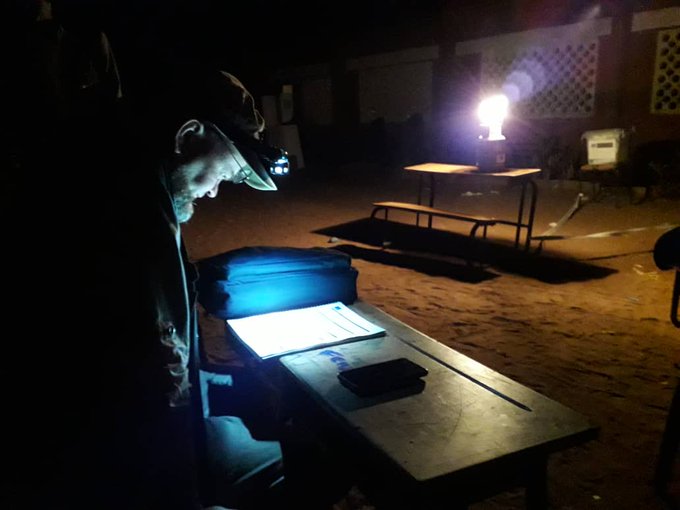

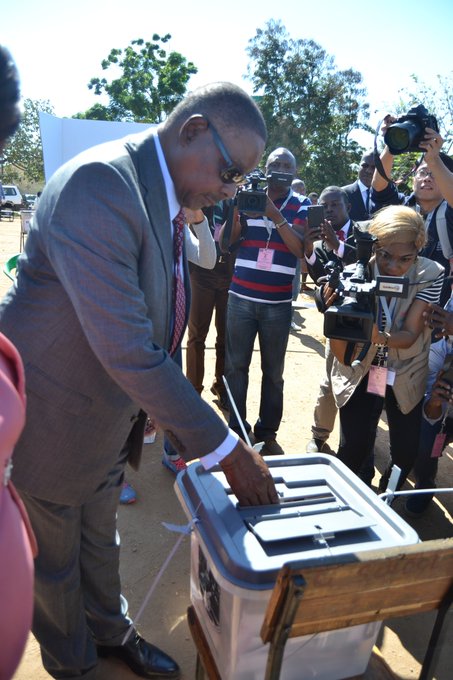
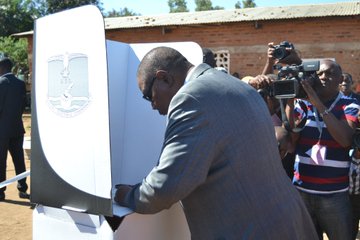
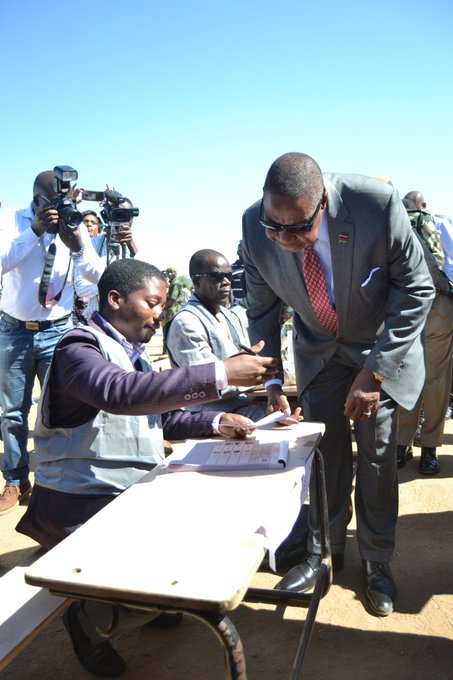

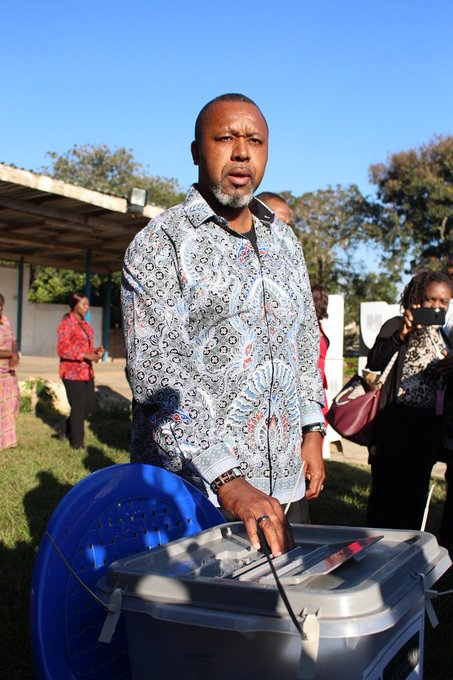
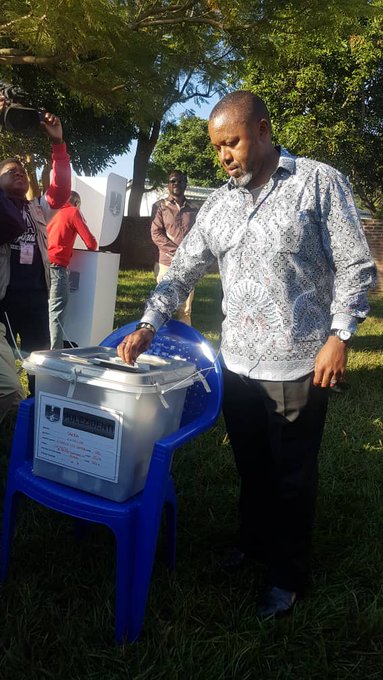
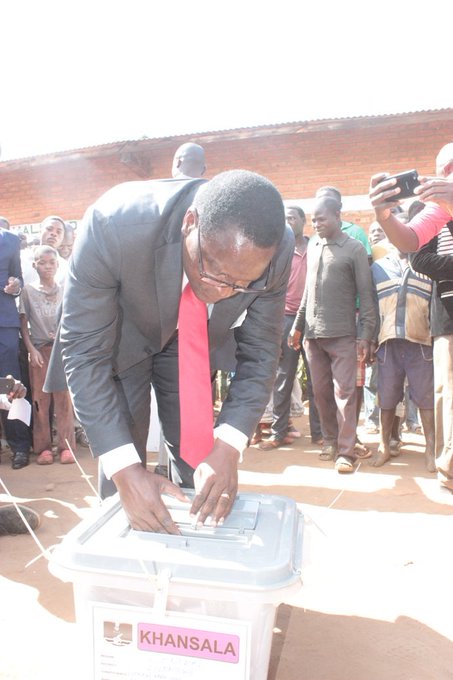
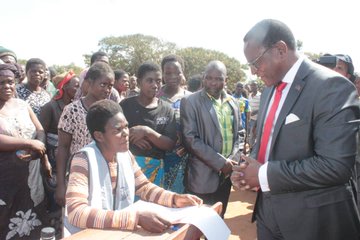
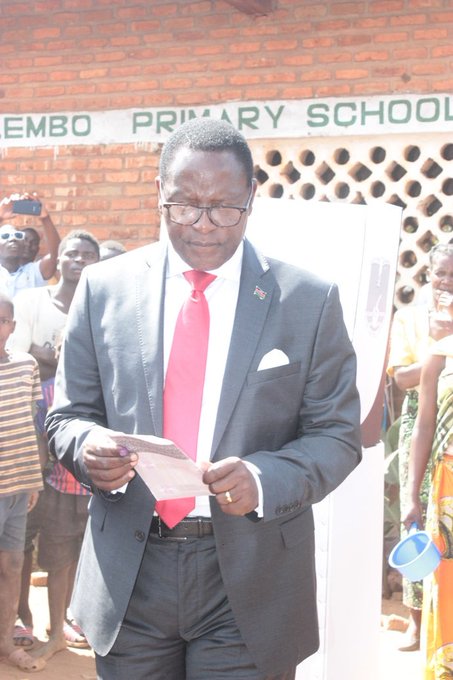
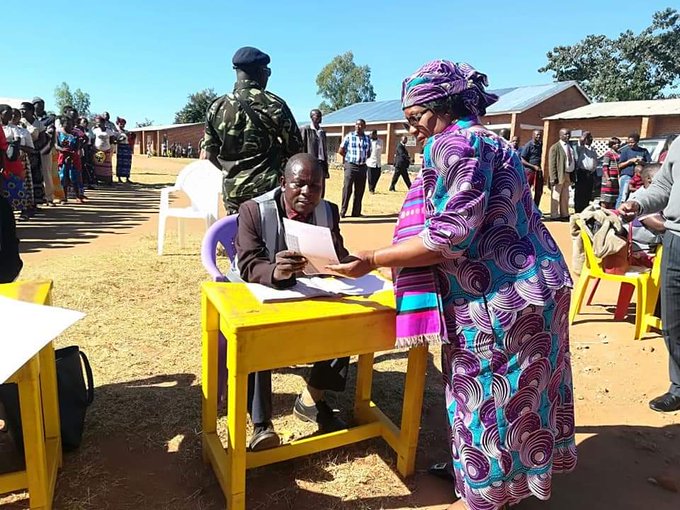
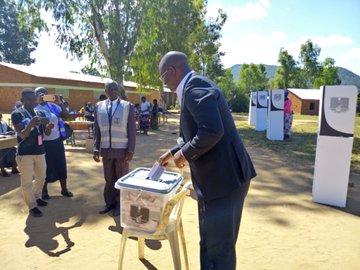
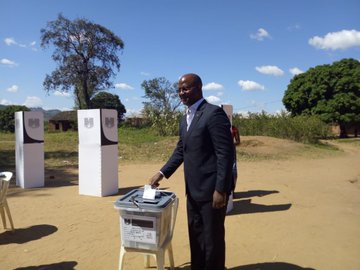


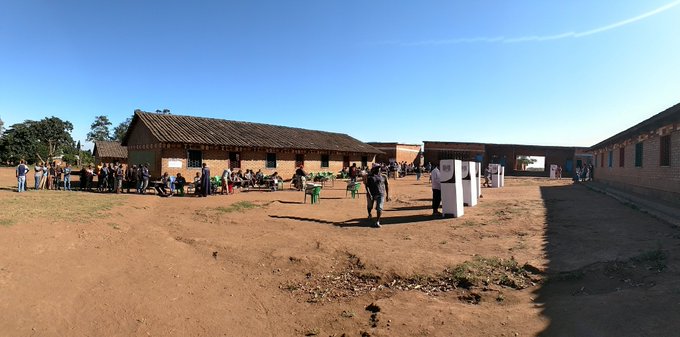

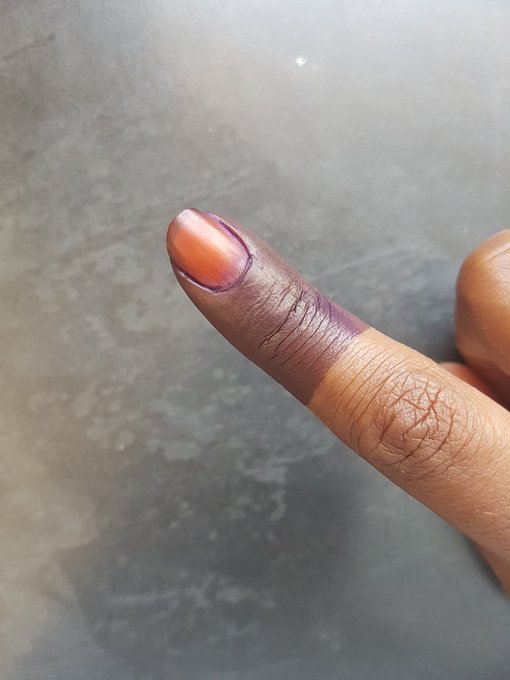


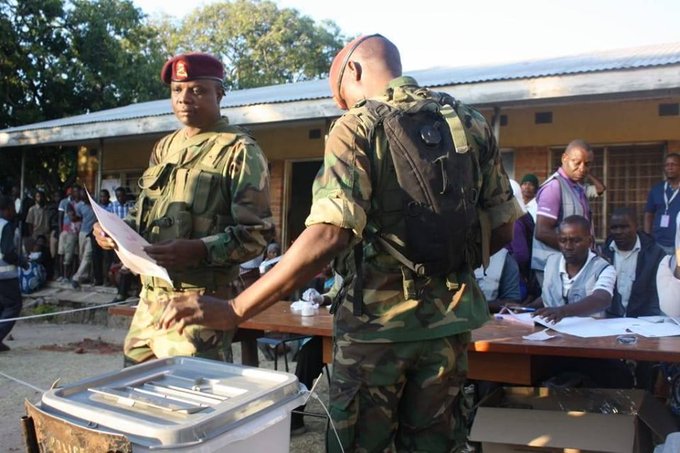

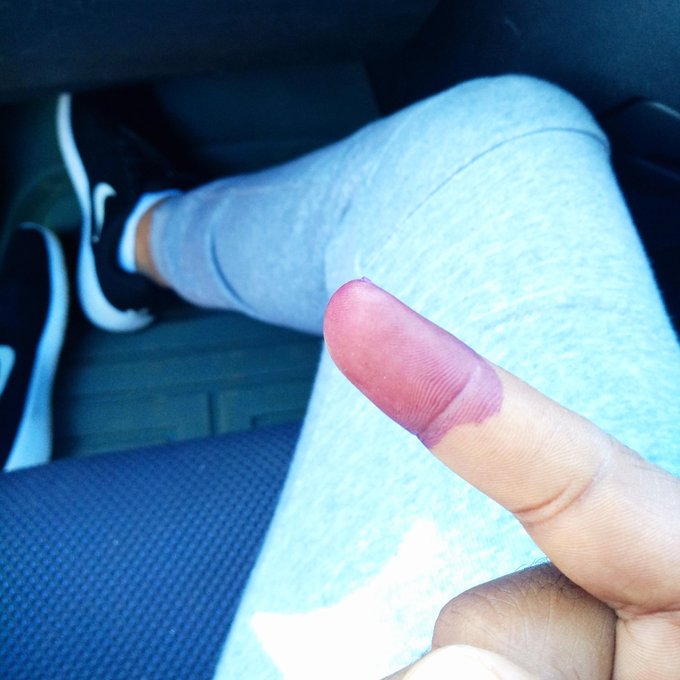

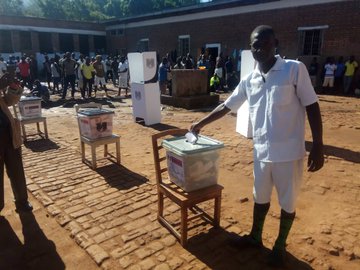
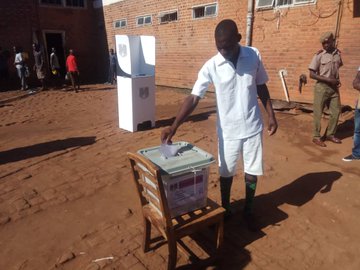
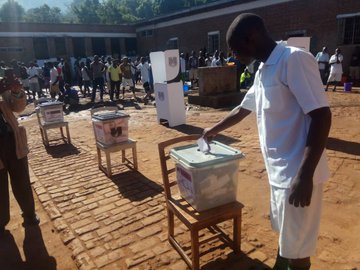
No comments:
Post a Comment